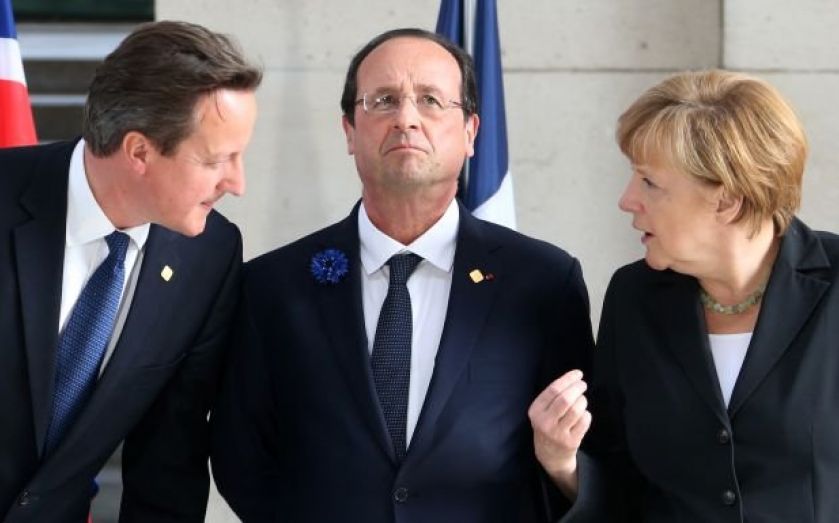| Updated:
EU still divided over Russian sanctions following MH17 crash

On Tuesday, EU leaders will meet in person to discuss possible sanctions on Russia following the crash of flight MH17 into rebel-held territory in the east of Ukraine.
Prime Minister David Cameron, German Chancellor Angela Merkel and French President François Hollande have already agreed over the phone that Russia must give investigators and aid workers more access to the site of the crash, according to a No 10 spokesperson.
The place of last Thursday's crash, which led to the deaths of 298 passengers, is currently under the tight control of pro-Russian rebels in the area.
While the EU stands united in its opinion that investigators must be given safe access to the site, divisions over the type and extent of sanctions to be imposed on Russia are expected to continue, the FT reports.
Since the start of the crisis in Ukraine, leaders of the EU's three largest economies have been in disagreement over how to penalise Russia, and overall have been hesitant about imposing sanctions on the country.
A renewed legal mandate is now in place which allows European foreign ministers to target a wider range of individuals and place more economic curbs on companies, but it is expected that the EU's reliance on Russian gas will prevent some countries from wanting to put this into action.
For months, Britain, Poland and the Baltic states have sought to hit individuals close to Putin with greater sanctions, but this has consistently been opposed by other European countries such as France, Germany and Italy, who are wary of putting strains on diplomacy.
Opinion is mixed over how much of an impact the crash will have on the debate, with many EU officials expressing doubt that there will be much shift. “The big issue is still the Kremlin cronies,” a senior EU diplomat said to the FT.
A call last week from the UK and Poland to implement “phase three” measures that would hit major parts of the Russian economy were rejected by France and Germany, with one French official saying that it was not yet the time to move beyond “phase two” and broaden the reach of sanctions.
In a sign of Germany's continuing stance on the matter, a statement released yesterday by Berlin did not make any mention of sanctions, with Ms Merkel's spokesperson emphasising the importance of Mr Putin resuming talks with Kiev.
Acknowledging the differences in opinion, Cameron has adapted his approach to minimise the negative impacts that his suggestions would have on other EU countries: he is now backing an embargo on only new Russian arms export licences.